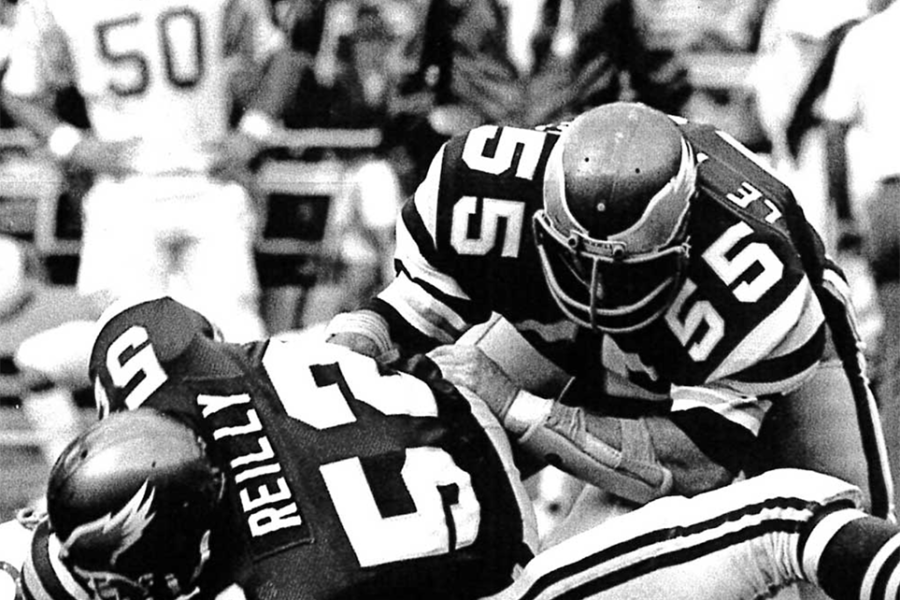
The top two questions that I get at Q&A’s following my speaking engagements are, “How has the NFL changed since you played in the 1970s?” and, “Knowing what you know now about dementia and CTE, would you do it all over again?” It would take longer than this article to fully answer both of these, but I’ll give you a brief rundown.
First, the most apparent difference between the NFL in the 70s and now is that players today are faster, stronger, bigger, and more athletic. Back then, only about 20% of my teammates lifted weights, a 4.6-second 40-yard dash was considered very fast, and in 1973 there were only two offensive linemen over 300 pounds. In my era, the few automatic football passing machines, or “jug machines,” were used for punting practice. If you wanted to catch 25 to 30 balls after practice, your “jug machine” was an assistant coach or a 3rd string wide receiver. Today, most receivers catch 100 balls after practice at different speeds and different angles, which has made the one-handed catch a regular game happening for the NFL contest today.
Yet another difference, thank goodness, is today’s NFL concussion protocol which is doing its best to protect players. In 1974 I suffered a concussion while playing on special teams for the Philadelphia Eagles against the Pittsburgh Steelers. I somehow found my way to the bench, and our trainer Otho Davis began the three-question test. First, “What is your name?” Second, Davis asked me how many fingers he was holding up. I replied “four” to his three fingers, and he said ”Close enough.” Then, question number three. To this day, I can’t remember what that question was, which explains why I was promptly removed from the game. Two days later, however, I rejoined full-contact practice for the entire week.
The third difference is that, in the 70s, we had no “free agency.” You were the property of the team who drafted or traded for you. Because of that restrictive system, my 1973 salary was a total of $17,500, which wasn’t that bad for a recent college graduate. And almost everybody on my team had an off-season job. Today’s minimum salary is $705,000 and since 2011 it has risen by nearly $300,000. Those 70s and 80s teams went on strike to get today’s players these incredible yearly paychecks with guaranteed money included.
Lastly, the fourth biggest change is the businesslike atmosphere between teammates. Back in the day, players stayed longer with their original teams, and the players not only became closer teammates but lifelong friends. The old NFL was similar to military service in a couple of ways. Like the military, we trained hard together in the 90-degree summer heat, we drank beer together, and on game day we were anxious and prayed together holding hands right before leaving the locker room. It wasn’t anything like military war, but it was war, and you could get seriously injured on the field. Most of us became friends for life, and I can only describe it as a unique brotherhood.
For example, a week after my amputation, it came time to remove the huge bandage from what used to be my left shoulder, arm, and four ribs. I wanted to do it with one of my closest Eagles teammates, linebacker John Bunting, who drove up to Sloan Kettering Hospital in New York City for the unveiling. John had been prepared by the staff on what to say, as it wasn’t going to be pretty. As we slowly undid the bandage, I looked in the mirror and gasped. It was worse than I ever imagined. No shoulder, no arm, and over 100 stitches drenched in dry blood. Then I turned to John, who blurted out, “Well, at least you got two good knees!” We both laughed at the absurdity of the situation, and just like that, my amputation was put in proper perspective.
Let me put it this way, when we were 25 and leaving each other after the last game of each season, it was a handshake goodbye. If anybody would have hugged me and said, “I love you, man,” I would have punched them in the face. But over the years of getting together at charity golf events, banquets, children’s baptisms, landmark birthdays, and two hall-of-fame ceremonies that we attended recently, there isn’t a time at this stage in our life when we don’t hug each other and say “I love you, man.”
Would I do it all over again? I absolutely would. It was never about the money, the fame, or the competition. It was about brotherhood, which gets even stronger as we get older, and still is today.

